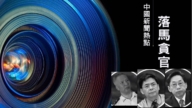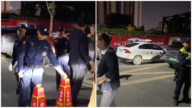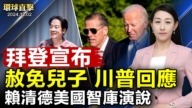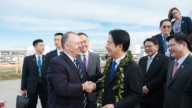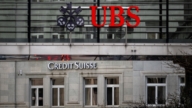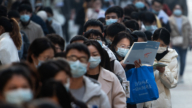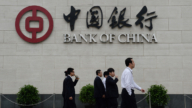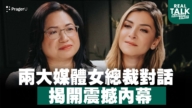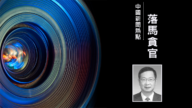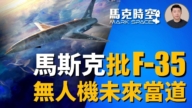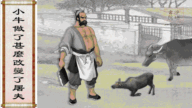【新唐人2012年1月3日訊】2012年是中共十八大領導層換屆的敏感年份,中共國家主席胡錦濤發表2012年新年賀詞,突出強調經濟發展和改善民生。國際媒體分析了中國政治、經濟、社會的八大趨勢,專家學者指出,中國在新的一年裡將繼續面臨通貨膨脹、經濟增長放緩,中共的首要任務將是維穩,保十八大。
胡錦濤在新年賀詞中說,當前世界多極化、經濟全球化深入發展,各國相互依存日益加深,但世界經濟復甦的不確定性上升,世界和平與發展面臨新的機遇和挑戰。
胡錦濤表示,在新的一年裡,中國要處理好保持經濟平穩較快發展、調整經濟結構、管理通脹的關係,加快推進經濟發展方式轉變。
原「中國經濟體制改革研究所」綜合研究室主任程曉農對此作了深層分析。
程曉農:「胡錦濤確實承認了兩點:第一是國際形勢複雜多變,第二點就是國內面臨種種壓力和困難。2011年是中國經濟大轉折的一個年份,就是中國經濟從表面上的繁榮,開始轉向越來越大的困難;與此同時,明確的表示放棄了所謂『中國崛起』這個說法。」
國務院發展研究中心「宏觀經濟研究部」主任余斌在歲末指出,中國經濟的高速發展期結束,2012年中國的經濟增長還會進一步下降。他同時提醒中國民眾「加大對通貨膨脹的容忍度」。
「紐約城市大學」經濟學教授陳志飛表示,在外貿下滑、內需不足的狀況下,中國經濟有「硬著陸」的風險。
陳志飛:「如果還是用貨幣的寬鬆政策來帶動經濟發展,那麼新一輪的惡性循環在房地產、在其他領域的這種泡沫經濟行為又會再現。那個時候,最影響民生的通貨膨脹又會死灰復燃,從這點來看,對老百姓來說,也確實是雪上加霜。」
2012年中共將召開十八大,被當局稱為「具有特殊重要意義的一年」。而頻頻發生的群體性事件、中小企業的經營困難、地方政府債務和金融潛在風險等等,都對當局維穩形成巨大的挑戰。
程曉農:「我相信十八大解決不了中國的問題,十八大只不過是把他們已經確定好的權力,安排給一個新的、年輕一些的班底,結果呢,所有的問題一切照舊。」
元旦前夕,英國《金融時報》發表中國《財經》雜誌主筆馬國川的文章,分析了影響甚至決定中國未來走向的八大趨勢。
其中包括:政府權力越來越大;司法改革偏離正途;經濟增長方式難以轉變;利益集團不斷坐大;腐敗愈演愈烈;思想爭論激烈;社會不滿纍積,群體性事件頻發;外部世界不確定性增強。
程曉農:「那麼在一個經濟越來越困難的局勢下,中國政府的政治壓力也會不斷增加。在這種情況下,實際上現在的政治體制和執政能力,已經不太適應解決這些問題了,實際上這些問題也不可能在現在的制度框架內得到根本解決。」
《金融時報》發表「中國改革下一步怎麼走?」文章,「復旦大學」經濟學院教授韋森表示,從中國經濟的基本面來看,未來出口、投資和居民消費都動力不足,困難還會接踵而來。這逼迫著中國進行經濟和社會改革,尤其是政治體制的改革。
新唐人記者常春、李元翰、柏妮採訪報導。
2012 – A Sensitive Year for CCP to Secure China’s Economy
The Chinese Communist Party (CCP) makes leadership
changes in 2012 when economic focus makes this sensitive
CCP President Hu Jintao highlighted developing the economy
and improving peoples’ livelihood in 2012 New Year speech.
International media analyzes eight trends for China’s politics,
economy, society. Experts say China will have more inflation.
They expect economic slowdown and the CCP regime’s top
priority is to maintain stability and secure its 18th Congress.
Hu Jintao said that today’s world multi-polarization and
economic globalization increased global interdependence.
Deepening uncertainty of world economic recovery means
peace and development face new threats and challenges.
Hu said that China will strike a balance between maintaining
steady and relatively fast economic growth.
By adjusting its economic structures and managing inflation,
China will accelerate its’ economic development mode.
Cheng Xiaonong, former Integrated Research Office Director
at China’s Economy Reform Institute, analyzes Hu’s speech.
Cheng Xiaonong: “Hu Jintao did recognize two points:
Firstly, the complicated and changeable international situation.
Secondly, the varied domestic pressures and difficulties.
The year of 2011 was a big turning point for China.
China’s economy diverted into an increasingly difficult plight
from its previous apparent prosperity.
And the regime has clearly abandoned the term of
“China’s rising".
Yu Bin, Macroeconomic Research Department Director at
State Council Development Research Center recently said
that the era of rapid economic development ended in China.
In 2012, the country’s economic growth will decline further.
Yu warned the Chinese people to “increase tolerances for
inflation."
Chen Zhifei, Professor of Economics at City University, New
York, says export slippage and weak domestic demand puts China’s economy at risk of a “hard landing”.
Chen Zhifei: “If the easing monetary policy is still used to stir
the economy a new round of vicious cycles will take place.
The bubble in real estate and other areas will reproduce.
reviving inflation that most affects peoples’ livelihoods.
In this sense, ordinary people’s lives will be worse. “
The CCP 18th Congress will be held in 2012 called “a year of
special significance" by the regime.
However, mass protests, operation and business failures of
SME’s along with local authority debts and financial risks
are frequently occurring, forming a tremendous challenge for
the CCP regime’s maintenance of stability.
Cheng Xiaonong: “I think that CCP’s 18th Congress cannot
solve China’s problems. They just transfer established power.
This goes to a new and younger leadership. So, the result is
that nothing will change."
UK’s Financial Time published an article on New Year’s Eve
by author, Ma Guochuan, editor of China’s Caijing magazine.
The article analyzes eight major trends that may influence and
even determine the future direction of China.
The trends include:
grown-up power with the authorities;
intensified corruption judicial reform deviating from the right path;
difficult transformation of economic growth mode;
constantly expanding interest groups;
high intensity thought debate; social discontent accumulating;
frequent occurrences of mass protests and uncertainty of the
outside world increasing.
Cheng Xiaonong: “With the increasingly difficult economic
situation, political pressure on China’s government will grow.
In this case, current political institutions and governance
capacity cannot help solve these problems in reality.”
Financial Times published an article, entitled
“What’s the next step for China’s reform?"
Wei Sen, Professor of Economics at Fudan University, said
China’s exports, investment and consumption face weak
driving forces in the future, and more difficulties
will follow one after another.
This will force China to carry out economic and social
reform, especially the reform of the political system.
NTD reporter Chang Chun, Li Yuanhan and Bo Ni


